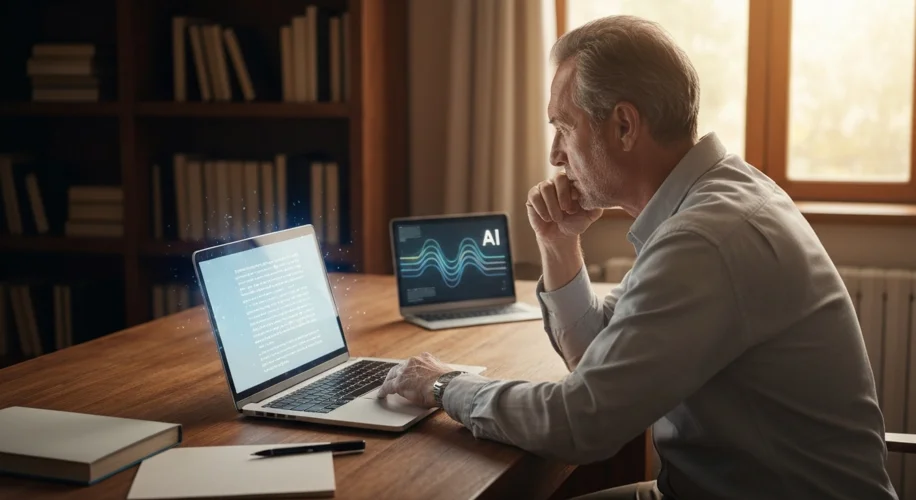It’s August 19, 2025, and I’m feeling… contemplative. For years, we’ve discussed how AI might change the world of work, especially creative fields. I’ve written about it myself, exploring the benefits and potential pitfalls.
Well, today, I put that discussion to a very personal test.
I’ve been working on an article about the history of AI in creative tools, a topic I know well. Normally, I’d spend a good hour or two on the initial research and drafting – finding sources, outlining, getting the first words down. It’s a process that involves thinking, structuring, and a bit of wrestling with ideas.
Today, I decided to see what AI could do. I fed a recent article I’d published into an advanced AI model, along with a prompt for a new piece on a related subject. I asked it to generate a first draft in my typical style. The expectation, even for the most sophisticated tools, was a rough starting point, something needing significant human editing.
What happened next was… surprising.
In just 40 seconds, the AI produced a complete first draft. And it wasn’t just a collection of sentences; it had a clear structure, a consistent tone, and, eerily, it sounded a lot like me. It captured the nuances of my writing style – the way I introduce concepts, my sentence cadence, even my preferred vocabulary for certain technical topics. It was, for all intents and purposes, a publishable first draft.
My immediate reaction wasn’t fear, but a profound sense of reflection. This isn’t about AI replacing creativity entirely, but about how it’s becoming an incredibly powerful, almost instantaneous, collaborator. The speed at which it generated a coherent and stylistically similar piece is a significant leap.
For decades, we’ve seen technology augment human capabilities. Think of spreadsheets for accountants or CAD software for engineers. Now, AI is entering the creative process itself, not just as a tool for research or editing, but as a co-creator of content. This raises important questions for all creative professions: what is the unique value we bring when the initial heavy lifting of information synthesis and drafting can be done so quickly?
From my perspective, the human element – the lived experience, the unique emotional intelligence, the critical judgment, and the genuine creativity – becomes even more paramount. AI can mimic style and structure, but it doesn’t feel or experience. It doesn’t have the personal history or the intuitive leaps that often lead to truly groundbreaking ideas or deeply resonant prose.
This isn’t a call to panic, but a moment for thoughtful consideration. As professionals in creative fields, we need to think about how we leverage these new capabilities. Perhaps the future isn’t about competing with AI, but about directing it, curating its output, and injecting our unique human perspective into what it creates. The efficiency is undeniable, but the soul of the work, the human touch, that’s what will continue to define our value.
It’s a new era, and it’s arriving faster than many of us anticipated.

